- Home
- Leo Tolstoy
The Cossacks
The Cossacks Read online
The Cossacks
Liev Tolstoi
THE COSSACKS
A Tale of 1852
By
Leo Tolstoy (1863)
Translated by Louise and Aylmer Maude
Chapter I
All is quiet in Moscow. The squeak of wheels is seldom heard in the snow-covered street. There are no lights left in the windows and the street lamps have been extinguished. Only the sound of bells, borne over the city from the church towers, suggests the approach of morning. The streets are deserted. At rare intervals a night-cabman's sledge kneads up the snow and sand in the street as the driver makes his way to another corner where he falls asleep while waiting for a fare. An old woman passes by on her way to church, where a few wax candles burn with a red light reflected on the gilt mountings of the icons. Workmen are already getting up after the long winter night and going to their work--but for the gentlefolk it is still evening.
From a window in Chevalier's Restaurant a light--illegal at that hour--is still to be seen through a chink in the shutter. At the entrance a carriage, a sledge, and a cabman's sledge, stand close together with their backs to the curbstone. A three-horse sledge from the post-station is there also. A yard-porter muffled up and pinched with cold is sheltering behind the corner of the house.
'And what's the good of all this jawing?' thinks the footman who sits in the hall weary and haggard. 'This always happens when I'm on duty.' From the adjoining room are heard the voices of three young men, sitting there at a table on which are wine and the remains of supper. One, a rather plain, thin, neat little man, sits looking with tired kindly eyes at his friend, who is about to start on a journey. Another, a tall man, lies on a sofa beside a table on which are empty bottles, and plays with his watch-key. A third, wearing a short, fur-lined coat, is pacing up and down the room stopping now and then to crack an almond between his strong, rather thick, but well-tended fingers. He keeps smiling at something and his face and eyes are all aglow. He speaks warmly and gesticulates, but evidently does not find the words he wants and those that occur to him seem to him inadequate to express what has risen to his heart.
'Now I can speak out fully,' said the traveller. 'I don't want to defend myself, but I should like you at least to understand me as I understand myself, and not look at the matter superficially. You say I have treated her badly,' he continued, addressing the man with the kindly eyes who was watching him.
'Yes, you are to blame,' said the latter, and his look seemed to express still more kindliness and weariness.
'I know why you say that,' rejoined the one who was leaving. 'To be loved is in your opinion as great a happiness as to love, and if a man obtains it, it is enough for his whole life.'
'Yes, quite enough, my dear fellow, more than enough!' confirmed the plain little man, opening and shutting his eyes.
'But why shouldn't the man love too?' said the traveller thoughtfully, looking at his friend with something like pity. 'Why shouldn't one love? Because love doesn't come ... No, to be beloved is a misfortune. It is a misfortune to feel guilty because you do not give something you cannot give. O my God!' he added, with a gesture of his arm. 'If it all happened reasonably, and not all topsy-turvy--not in our way but in a way of its own! Why, it's as if I had stolen that love! You think so too, don't deny it. You must think so. But will you believe it, of all the horrid and stupid things I have found time to do in my life--and there are many--this is one I do not and cannot repent of. Neither at the beginning nor afterwards did I lie to myself or to her. It seemed to me that I had at last fallen in love, but then I saw that it was an involuntary falsehood, and that that was not the way to love, and I could not go on, but she did. Am I to blame that I couldn't? What was I to do?'
'Well, it's ended now!' said his friend, lighting a cigar to master his sleepiness. 'The fact is that you have not yet loved and do not know what love is.'
The man in the fur-lined coat was going to speak again, and put his hands to his head, but could not express what he wanted to say.
'Never loved! ... Yes, quite true, I never have! But after all, I have within me a desire to love, and nothing could be stronger than that desire! But then, again, does such love exist? There always remains something incomplete. Ah well! What's the use of talking? I've made an awful mess of life! But anyhow it's all over now; you are quite right. And I feel that I am beginning a new life.'
'Which you will again make a mess of,' said the man who lay on the sofa playing with his watch-key. But the traveller did not listen to him.
'I am sad and yet glad to go,' he continued. 'Why I am sad I don't know.'
And the traveller went on talking about himself, without noticing that this did not interest the others as much as it did him. A man is never such an egotist as at moments of spiritual ecstasy. At such times it seems to him that there is nothing on earth more splendid and interesting than himself.
'Dmitri Andreich! The coachman won't wait any longer!' said a young serf, entering the room in a sheepskin coat, with a scarf tied round his head. 'The horses have been standing since twelve, and it's now four o'clock!'
Dmitri Andreich looked at his serf, Vanyusha. The scarf round Vanyusha's head, his felt boots and sleepy face, seemed to be calling his master to a new life of labour, hardship, and activity.
'True enough! Good-bye!' said he, feeling for the unfastened hook and eye on his coat.
In spite of advice to mollify the coachman by another tip, he put on his cap and stood in the middle of the room. The friends kissed once, then again, and after a pause, a third time. The man in the fur-lined coat approached the table and emptied a champagne glass, then took the plain little man's hand and blushed.
'Ah well, I will speak out all the same ... I must and will be frank with you because I am fond of you ... Of course you love her--I always thought so--don't you?'
'Yes,' answered his friend, smiling still more gently.
'And perhaps...'
'Please sir, I have orders to put out the candles,' said the sleepy attendant, who had been listening to the last part of the conversation and wondering why gentlefolk always talk about one and the same thing. 'To whom shall I make out the bill? To you, sir?' he added, knowing whom to address and turning to the tall man.
'To me,' replied the tall man. 'How much?'
'Twenty-six rubles.'
The tall man considered for a moment, but said nothing and put the bill in his pocket.
The other two continued their talk.
'Good-bye, you are a capital fellow!' said the short plain man with the mild eyes. Tears filled the eyes of both. They stepped into the porch.
'Oh, by the by,' said the traveller, turning with a blush to the tall man, 'will you settle Chevalier's bill and write and let me know?'
'All right, all right!' said the tall man, pulling on his gloves. 'How I envy you!' he added quite unexpectedly when they were out in the porch.
The traveller got into his sledge, wrapped his coat about him, and said: 'Well then, come along!' He even moved a little to make room in the sledge for the man who said he envied him--his voice trembled.
'Good-bye, Mitya! I hope that with God's help you...' said the tall one. But his wish was that the other would go away quickly, and so he could not finish the sentence.
They were silent a moment. Then someone again said, 'Good-bye,' and a voice cried, 'Ready,' and the coachman touched up the horses.
'Hy, Elisar!' One of the friends called out, and the other coachman and the sledge-drivers began moving, clicking their tongues and pulling at the reins. Then the stiffened carriage-wheels rolled squeaking over the frozen snow.
'A fine fellow, that Olenin!' said one of the friends. 'But what an idea to go to the Caucasus--as a cadet, too! I wouldn't do it for anything.
... Are you dining at the club to-morrow?'
'Yes.'
They separated.
The traveller felt warm, his fur coat seemed too hot. He sat on the bottom of the sledge and unfastened his coat, and the three shaggy post-horses dragged themselves out of one dark street into another, past houses he had never before seen. It seemed to Olenin that only travellers starting on a long journey went through those streets. All was dark and silent and dull around him, but his soul was full of memories, love, regrets, and a pleasant tearful feeling.
Chapter II
'I'm fond of them, very fond! ... First-rate fellows! ... Fine!' he kept repeating, and felt ready to cry. But why he wanted to cry, who were the first-rate fellows he was so fond of--was more than he quite knew. Now and then he looked round at some house and wondered why it was so curiously built; sometimes he began wondering why the post-boy and Vanyusha, who were so different from himself, sat so near, and together with him were being jerked about and swayed by the tugs the side-horses gave at the frozen traces, and again he repeated: 'First rate ... very fond!' and once he even said: 'And how it seizes one ... excellent!' and wondered what made him say it. 'Dear me, am I drunk?' he asked himself. He had had a couple of bottles of wine, but it was not the wine alone that was having this effect on Olenin. He remembered all the words of friendship heartily, bashfully, spontaneously (as he believed) addressed to him on his departure. He remembered the clasp of hands, glances, the moments of silence, and the sound of a voice saying, 'Good-bye, Mitya!' when he was already in the sledge. He remembered his own deliberate frankness. And all this had a touching significance for him. Not only friends and relatives, not only people who had been indifferent to him, but even those who did not like him, seemed to have agreed to become fonder of him, or to forgive him, before his departure, as people do before confession or death. 'Perhaps I shall not return from the Caucasus,' he thought. And he felt that he loved his friends and some one besides. He was sorry for himself. But it was not love for his friends that so stirred and uplifted his heart that he could not repress the meaningless words that seemed to rise of themselves to his lips; nor was it love for a woman (he had never yet been in love) that had brought on this mood. Love for himself, love full of hope--warm young love for all that was good in his own soul (and at that moment it seemed to him that there was nothing but good in it)--compelled him to weep and to mutter incoherent words.
Olenin was a youth who had never completed his university course, never served anywhere (having only a nominal post in some government office or other), who had squandered half his fortune and had reached the age of twenty-four without having done anything or even chosen a career. He was what in Moscow society is termed un jeune homme.
At the age of eighteen he was free--as only rich young Russians in the 'forties who had lost their parents at an early age could be. Neither physical nor moral fetters of any kind existed for him; he could do as he liked, lacking nothing and bound by nothing. Neither relatives, nor fatherland, nor religion, nor wants, existed for him. He believed in nothing and admitted nothing. But although he believed in nothing he was not a morose or blase young man, nor self-opinionated, but on the contrary continually let himself be carried away. He had come to the conclusion that there is no such thing as love, yet his heart always overflowed in the presence of any young and attractive woman. He had long been aware that honours and position were nonsense, yet involuntarily he felt pleased when at a ball Prince Sergius came up and spoke to him affably. But he yielded to his impulses only in so far as they did not limit his freedom. As soon as he had yielded to any influence and became conscious of its leading on to labour and struggle, he instinctively hastened to free himself from the feeling or activity into which he was being drawn and to regain his freedom. In this way he experimented with society-life, the civil service, farming, music--to which at one time he intended to devote his life--and even with the love of women in which he did not believe. He meditated on the use to which he should devote that power of youth which is granted to man only once in a lifetime: that force which gives a man the power of making himself, or even--as it seemed to him--of making the universe, into anything he wishes: should it be to art, to science, to love of woman, or to practical activities? It is true that some people are devoid of this impulse, and on entering life at once place their necks under the first yoke that offers itself and honestly labour under it for the rest of their lives. But Olenin was too strongly conscious of the presence of that all-powerful God of Youth--of that capacity to be entirely transformed into an aspiration or idea--the capacity to wish and to do--to throw oneself headlong into a bottomless abyss without knowing why or wherefore. He bore this consciousness within himself, was proud of it and, without knowing it, was happy in that consciousness. Up to that time he had loved only himself, and could not help loving himself, for he expected nothing but good of himself and had not yet had time to be disillusioned. On leaving Moscow he was in that happy state of mind in which a young man, conscious of past mistakes, suddenly says to himself, 'That was not the real thing.' All that had gone before was accidental and unimportant. Till then he had not really tried to live, but now with his departure from Moscow a new life was beginning--a life in which there would be no mistakes, no remorse, and certainly nothing but happiness.
It is always the case on a long journey that till the first two or three stages have been passed imagination continues to dwell on the place left behind, but with the first morning on the road it leaps to the end of the journey and there begins building castles in the air. So it happened to Olenin.
After leaving the town behind, he gazed at the snowy fields and felt glad to be alone in their midst. Wrapping himself in his fur coat, he lay at the bottom of the sledge, became tranquil, and fell into a doze. The parting with his friends had touched him deeply, and memories of that last winter spent in Moscow and images of the past, mingled with vague thoughts and regrets, rose unbidden in his imagination.
He remembered the friend who had seen him off and his relations with the girl they had talked about. The girl was rich. "How could he love her knowing that she loved me?" thought he, and evil suspicions crossed his mind. "There is much dishonesty in men when one comes to reflect." Then he was confronted by the question: "But really, how is it I have never been in love? Every one tells me that I never have. Can it be that I am a moral monstrosity?" And he began to recall all his infatuations. He recalled his entry into society, and a friend's sister with whom he spent several evenings at a table with a lamp on it which lit up her slender fingers busy with needlework, and the lower part of her pretty delicate face. He recalled their conversations that dragged on like the game in which one passes on a stick which one keeps alight as long as possible, and the general awkwardness and restraint and his continual feeling of rebellion at all that conventionality. Some voice had always whispered: "That's not it, that's not it," and so it had proved. Then he remembered a ball and the mazurka he danced with the beautiful D----. "How much in love I was that night and how happy! And how hurt and vexed I was next morning when I woke and felt myself still free! Why does not love come and bind me hand and foot?" thought he. "No, there is no such thing as love! That neighbour who used to tell me, as she told Dubrovin and the Marshal, that she loved the stars, was not IT either." And now his farming and work in the country recurred to his mind, and in those recollections also there was nothing to dwell on with pleasure. "Will they talk long of my departure?" came into his head; but who "they" were he did not quite know. Next came a thought that made him wince and mutter incoherently. It was the recollection of M. Cappele the tailor, and the six hundred and seventy-eight rubles he still owed him, and he recalled the words in which he had begged him to wait another year, and the look of perplexity and resignation which had appeared on the tailor's face. 'Oh, my God, my God!' he repeated, wincing and trying to drive away the intolerable thought. 'All the same and in spite of everything she loved me,' thought he of the girl they had talked about at
the farewell supper. 'Yes, had I married her I should not now be owing anything, and as it is I am in debt to Vasilyev.' Then he remembered the last night he had played with Vasilyev at the club (just after leaving her), and he recalled his humiliating requests for another game and the other's cold refusal. 'A year's economizing and they will all be paid, and the devil take them!'... But despite this assurance he again began calculating his outstanding debts, their dates, and when he could hope to pay them off. 'And I owe something to Morell as well as to Chevalier,' thought he, recalling the night when he had run up so large a debt. It was at a carousel at the gipsies arranged by some fellows from Petersburg: Sashka B---, an aide-de-camp to the Tsar, Prince D---, and that pompous old----. 'How is it those gentlemen are so self-satisfied?' thought he, 'and by what right do they form a clique to which they think others must be highly flattered to be admitted? Can it be because they are on the Emperor's staff? Why, it's awful what fools and scoundrels they consider other people to be! But I showed them that I at any rate, on the contrary, do not at all want their intimacy. All the same, I fancy Andrew, the steward, would be amazed to know that I am on familiar terms with a man like Sashka B---, a colonel and an aide-de-camp to the Tsar! Yes, and no one drank more than I did that evening, and I taught the gipsies a new song and everyone listened to it. Though I have done many foolish things, all the same I am a very good fellow,' thought he.
Morning found him at the third post-stage. He drank tea, and himself helped Vanyusha to move his bundles and trunks and sat down among them, sensible, erect, and precise, knowing where all his belongings were, how much money he had and where it was, where he had put his passport and the post-horse requisition and toll-gate papers, and it all seemed to him so well arranged that he grew quite cheerful and the long journey before him seemed an extended pleasure-trip.
All that morning and noon he was deep in calculations of how many versts he had travelled, how many remained to the next stage, how many to the next town, to the place where he would dine, to the place where he would drink tea, and to Stavropol, and what fraction of the whole journey was already accomplished. He also calculated how much money he had with him, how much would be left over, how much would pay off all his debts, and what proportion of his income he would spend each month. Towards evening, after tea, he calculated that to Stavropol there still remained seven-elevenths of the whole journey, that his debts would require seven months' economy and one-eighth of his whole fortune; and then, tranquillized, he wrapped himself up, lay down in the sledge, and again dozed off. His imagination was now turned to the future: to the Caucasus. All his dreams of the future were mingled with pictures of Amalat-Beks, Circassian women, mountains, precipices, terrible torrents, and perils. All these things were vague and dim, but the love of fame and the danger of death furnished the interest of that future. Now, with unprecedented courage and a strength that amazed everyone, he slew and subdued an innumerable host of hillsmen; now he was himself a hillsman and with them was maintaining their independence against the Russians. As soon as he pictured anything definite, familiar Moscow figures always appeared on the scene. Sashka B---fights with the Russians or the hillsmen against him. Even the tailor Cappele in some strange way takes part in the conqueror's triumph. Amid all this he remembered his former humiliations, weaknesses, and mistakes, and the recollection was not disagreeable. It was clear that there among the mountains, waterfalls, fair Circassians, and dangers, such mistakes could not recur. Having once made full confession to himself there was an end of it all. One other vision, the sweetest of them all, mingled with the young man's every thought of the future--the vision of a woman.

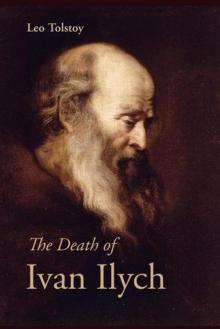 The Death of Ivan Ilych
The Death of Ivan Ilych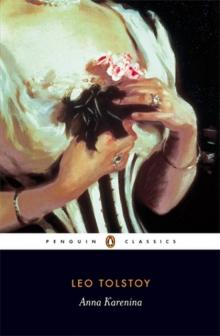 Anna Karenina
Anna Karenina Resurrection
Resurrection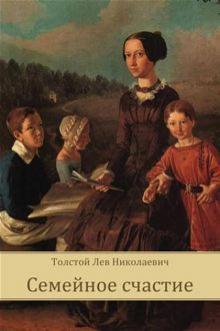 Family Happiness
Family Happiness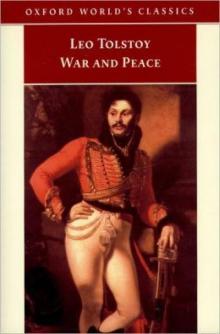 War and Peace
War and Peace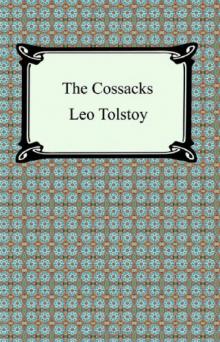 The Cossacks
The Cossacks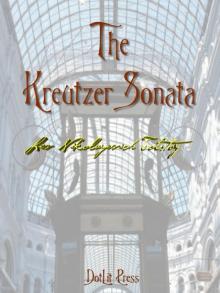 The Kreutzer Sonata
The Kreutzer Sonata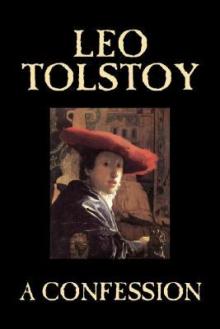 A Confession
A Confession The Kingdom of God Is Within You
The Kingdom of God Is Within You Father Sergius
Father Sergius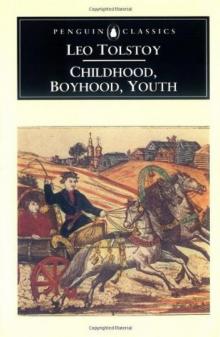 Childhood, Boyhood, Youth
Childhood, Boyhood, Youth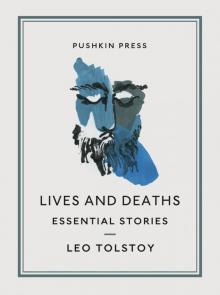 Lives and Deaths
Lives and Deaths The Devil
The Devil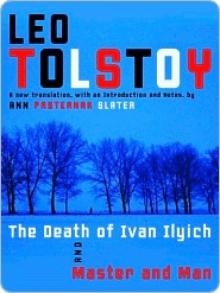 The Death of Ivan Ilyich and Master and Man
The Death of Ivan Ilyich and Master and Man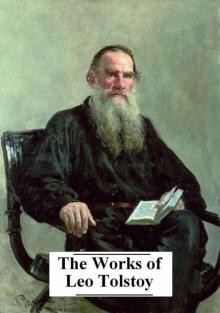 The Complete Works of Leo Tolstoy (25+ Works with active table of contents)
The Complete Works of Leo Tolstoy (25+ Works with active table of contents)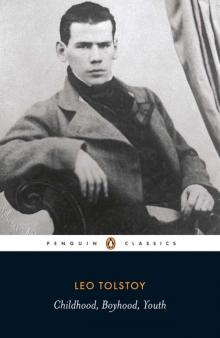 Childhood, Boyhood, Youth (Penguin ed.)
Childhood, Boyhood, Youth (Penguin ed.)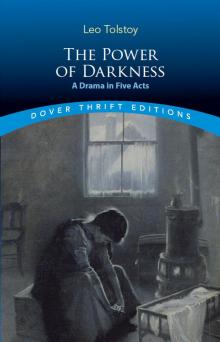 The Power of Darkness
The Power of Darkness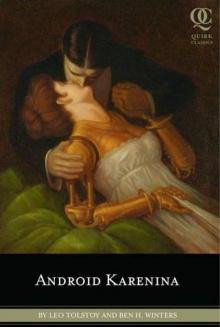 Android Karenina
Android Karenina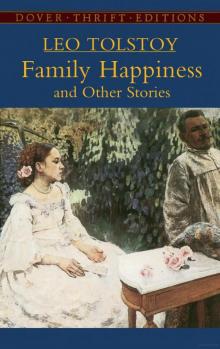 Family Happiness and Other Stories
Family Happiness and Other Stories The Lion and the Puppy
The Lion and the Puppy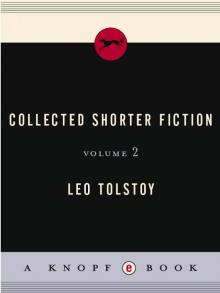 Collected Shorter Fiction, Volume 2
Collected Shorter Fiction, Volume 2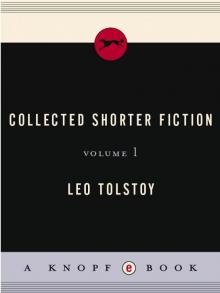 Collected Shorter Fiction, Volume 1
Collected Shorter Fiction, Volume 1